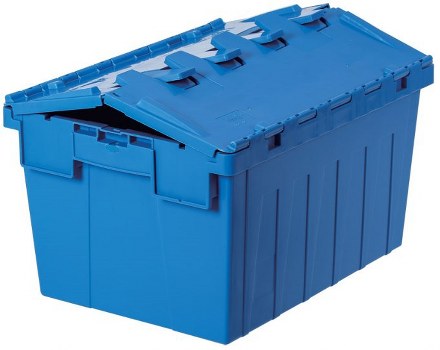Everything You Need to Know About Skip Permits in Seven Sisters
Understanding Skip Permits

When it comes to managing waste effectively in Seven Sisters, obtaining a skip permit is essential. A skip permit allows residents and businesses to place a skip on public property for the duration of their project. This facilitates efficient waste disposal while ensuring that the streets and public areas remain clean and orderly.
Skip permits are regulated by the local council, and having one ensures that your skip placement complies with all local laws and guidelines. Without a permit, you risk facing fines or having your skip removed by authorities.
In Seven Sisters, the process of obtaining a skip permit is straightforward, but it’s important to understand the requirements and regulations to ensure a smooth application process.
Why You Need a Skip Permit in Seven Sisters

Whether you're renovating your home, undertaking construction work, or simply cleaning up a large area, a skip can be invaluable for efficient waste management. However, placing a skip without the necessary permit can lead to significant legal and financial consequences.
Having a skip permit in Seven Sisters ensures that your waste is disposed of responsibly and that you adhere to local environmental standards. It also helps prevent potential hazards associated with improperly stored waste, such as blocking drainage systems or obstructing pedestrian pathways.
Moreover, obtaining a skip permit can provide peace of mind, knowing that your project complies with all municipal regulations and that your community remains clean and safe.
Benefits of Obtaining a Skip Permit

- Legal Compliance: Avoid fines and legal issues by adhering to local regulations.
- Environmental Protection: Ensure that waste is disposed of in an eco-friendly manner.
- Convenience: Simplify waste management during large projects.
Additionally, a skip permit can help streamline the waste disposal process, making your project more efficient and less stressful.
Understanding the importance of skip permits can save you time and resources in the long run, ensuring that your waste management practices are both effective and compliant.
How to Apply for a Skip Permit

Applying for a skip permit in Seven Sisters involves a few essential steps. First, you need to determine the appropriate size of the skip based on the volume of waste you expect to generate. Skips come in various sizes, and selecting the right one is crucial for effective waste management.
Once you have determined the required skip size, you can proceed to fill out the permit application form, which is available on the local council’s website or at their office. The form will require details such as the location for the skip placement, the duration for which the skip will be needed, and information about the type of waste you intend to dispose of.
After submitting the application, it may take a few days for the council to process your request. It's advisable to apply well in advance of your project start date to avoid any delays.
Required Documentation

- Completed application form
- Proof of address or property ownership
- Details of the waste to be disposed of
Having all the necessary documentation ready can expedite the application process, ensuring that you receive your permit in a timely manner.
Additionally, being thorough and accurate in your application reduces the likelihood of your permit being delayed or denied.
Regulations and Rules for Skips in Seven Sisters
Seven Sisters has specific regulations governing the placement and use of skips. It's important to familiarize yourself with these rules to ensure compliance and avoid potential penalties.
Placement Guidelines: Skips can generally be placed on public property such as pavements and roadsides, but they must not obstruct footpaths, driveways, or natural drainage systems. The exact placement location may require approval from the local council.
Duration of Use: There are limits to how long a skip can remain in place. Typically, permits are granted for a set period, after which you may need to extend the permit or remove the skip.
Prohibited Items in Skips
- Hazardous materials such as asbestos, chemicals, and batteries
- Electrical appliances with refrigerants
- Medical waste
Disposing of prohibited items in a skip can lead to severe legal consequences and environmental damage. It's crucial to separate such items from general waste and dispose of them through appropriate channels.
Always check with the local council or waste management service for guidelines on disposing of specific types of waste.
Choosing the Right Skip Size for Your Needs
Selecting the correct skip size is vital for effective waste management. Skips come in various dimensions, typically ranging from 2 cubic yards to 12 cubic yards, each suitable for different types of projects.
For small household clean-ups, a 2 or 3-yard skip may suffice, whereas larger construction projects might require a 10 or 12-yard skip. Assessing the volume of waste you expect to generate will help you make an informed decision.
Many skip providers offer guidance on selecting the appropriate size based on your specific project requirements.
Factors to Consider When Choosing a Skip
- Type of Waste: Different projects generate different types of waste, which may influence skip size and placement.
- Project Duration: Longer projects may require larger or multiple skips to accommodate ongoing waste generation.
- Space Availability: Ensure there is adequate space for skip placement without causing obstructions.
Taking these factors into account will help you select a skip that best fits your needs, ensuring efficient and hassle-free waste disposal.
Consulting with waste management professionals can also provide valuable insights into the best skip options for your project.
Tips for Efficient Waste Management
Effective waste management goes beyond simply having a skip on site. Implementing best practices can enhance efficiency and sustainability during your project.
Sort Your Waste: Separate recyclable materials from general waste to reduce the environmental impact and potentially lower disposal costs.
Maximize Skip Space: Press down the waste in the skip to maximize space usage, ensuring you make the most of the allocated volume.
Sustainable Practices
- Reuse materials where possible to minimize waste.
- Choose eco-friendly waste disposal services.
- Educate your team on proper waste sorting techniques.
Incorporating sustainable practices not only benefits the environment but can also contribute to cost savings and project efficiency.
Moreover, adhering to green waste management practices can enhance your reputation as a responsible and environmentally conscious entity.
Common Mistakes to Avoid When Using Skip Permits
Using skip permits effectively requires attention to detail and adherence to regulations. Avoiding common mistakes can save you time, money, and potential legal issues.
Overfilling the Skip: Exceeding the skip's capacity can result in additional charges or the need for an extra skip, disrupting your project timeline.
Ignoring Permit Conditions: Failing to comply with permit conditions, such as placement restrictions and usage duration, can lead to fines or permit revocation.
Additional Pitfalls
- Not securing the skip properly, leading to safety hazards.
- Neglecting to schedule timely pickups, resulting in skips remaining on-site longer than permitted.
- Improperly disposing of prohibited items, causing environmental harm and legal repercussions.
Being mindful of these potential pitfalls can help you maintain a smooth and compliant waste management process throughout your project.
Regularly reviewing permit terms and maintaining communication with waste management providers can further prevent these issues.
Cost of Skip Permits in Seven Sisters
The cost of obtaining a skip permit in Seven Sisters varies based on several factors, including the size of the skip, duration of placement, and the type of waste being disposed of. It's important to budget appropriately to avoid unexpected expenses.
Typically, larger skips and longer permit durations will incur higher costs. Additionally, disposing of specific types of waste, such as hazardous materials, may involve additional fees.
Comparing prices from different waste management providers can help you find the best deal without compromising on service quality.
Factors Influencing Skip Permit Costs
- Skip Size: Larger skips cost more due to increased capacity.
- Permit Duration: Extended permits require higher fees.
- Waste Type: Specialized waste disposal may incur extra charges.
Understanding these cost factors allows you to make informed decisions and manage your project's budget effectively.
It's also beneficial to inquire about any potential discounts or package deals that waste management companies may offer for multiple or long-term skip permits.
Alternatives to Skip Permits
While skip permits are a common solution for waste management, there are alternative options that may better suit certain projects or budgets.
Bulky Waste Collection: Some municipalities offer services for the collection of bulky waste items, which can be a cost-effective alternative to renting a skip.
Recycling Centers: Utilizing local recycling centers for specific types of waste can reduce the need for skip space and support environmental sustainability.
Other Waste Management Options
- Hiring a professional junk removal service for on-demand waste disposal.
- Using smaller waste containers for less extensive projects.
- Implementing a waste reduction plan to minimize the amount of waste generated.
Each alternative has its own set of benefits and limitations, so it's important to assess your specific needs before deciding on the best waste management strategy.
Combining multiple waste disposal methods can also enhance efficiency and reduce overall costs.
Conclusion
Obtaining a skip permit in Seven Sisters is a crucial step for anyone looking to manage waste effectively during construction, renovation, or large-scale clean-up projects. By understanding the requirements, regulations, and best practices, you can ensure that your waste disposal process is both efficient and compliant.
Remember to choose the right skip size, adhere to permit conditions, and consider sustainable waste management practices to maximize the benefits of your skip permit.
Ready to streamline your waste management process? Contact us today to secure your skip permit and make your project a success!